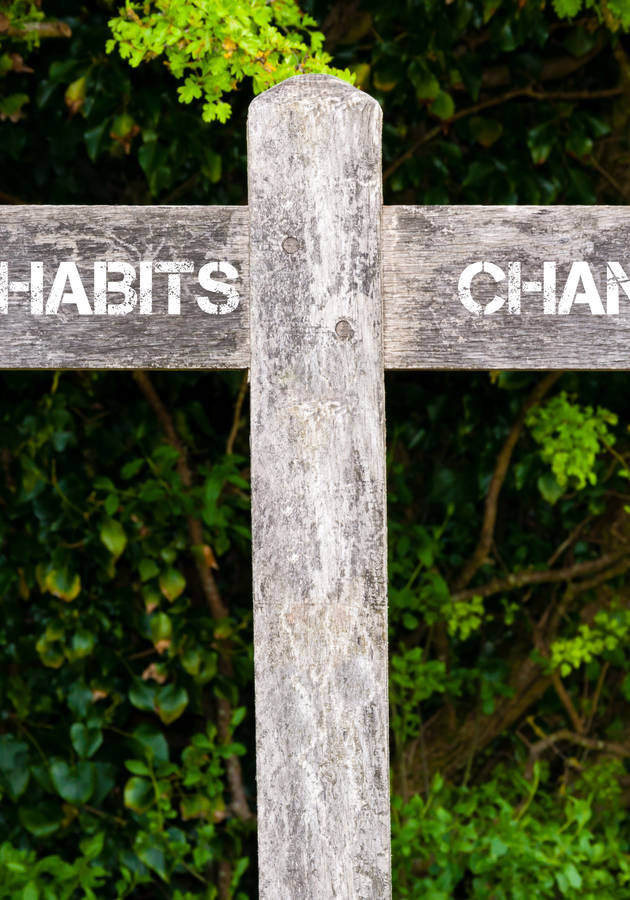Dr. John Gottman, professor emeritus of psychology at the University of Washington, is widely considered one of the world’s leading experts on the subjects of marriage and divorce. In “The Relationship Cure” – one of his numerous books on improving intimate relationships – he presents a practical five-step program that can help you greatly improve all of your relationships in life. So, get ready to discover the basic principles that regulate how we connect to each other and prepare to learn how to better respond emotionally to the people you love and are loved by!
Bids (or: How we connect emotionally)
A few decades ago, Gottman invited more than 100 newlywed couples to spend a day at his “Love Lab,” where they were asked to do ordinary, daily activities together. He noticed that throughout the day the partners would constantly make “small, seemingly insignificant requests for connection from each other.” He called these requests “bids” and he realized that meeting them was, by far, the most important factor in the success of a marriage.
Simply defined, a bid is “the fundamental unit of emotional communication.” It can come in the form of “a question, a gesture, a look, a touch.” It can also come in the form of a word, an email, the tone of your voice. It can be a gift, an invitation to a party, and even a Tinder swipe. All in all, a bid is any single expression that can be translated into “I want to feel connected to you.”
Just like all matter is built from atoms, all communication is built from bids. After all, it is practically impossible to communicate with others without sending some requests for connection. As English novelist Alan Garner wrote in 1981, in his primer on interpersonal communication “Conversationally Speaking,” “Whether you smile or maintain a blank face, look straight ahead or down at the ground, reach out and touch or hold back, you are communicating, and others will attach meaning to that communication.”
There are three different ways to respond to another person’s bids for connection:
- Turn toward. To “turn toward” someone’s bid for connection means to react to it in a positive manner. Someone makes a funny comment, and you laugh. Another one tells you about their vacation, and you ask to see a few photos. Your colleague asks you to pass him some documents and you do it in a kind, accommodating way.
- Turn against. To “turn against” another one’s bids for connection means to react to them in a negative way. Your friend tells you that they want to buy a house in Berlin, and you reply with “What?! On your salary? Dream on!” People who turn against other people’s bids for connection frequently use sarcasm and ridicule. Moreover, they often come across as belligerent and argumentative.
- Turn away. To “turn away” from another person’s bids for connection means to ignore them or to act too preoccupied to take them into consideration. Your friend apologizes to you for a mistake and you reply with silence. Your spouse tells you that the dinner’s ready but you disregard the call and go on watching TV instead.
Step No. 1: Look at your bids for connection
Following years of research, Gottman and his colleagues discovered that nothing affects relationships as much as the bidding process. For example, they found out that husbands headed for divorce turned away from their wives’ bids for connection 82% of the time, whereas husbands in stable relationships – quite conversely – turned toward them four out of five times. Just the same, happily married wives turned toward their husbands’ bids for attention 86% of the time, and wives headed for divorce turned against them half of the time. In other words, high rates of positive engagement pay off in tremendous ways; the only thing worse than turning against another person’s bids for connection – is turning away from them.
Hence, if you want to make your relationships work, you must first master “the art of the bid.” That’s the first step in Gottman’s 5-step program to strengthening your marriage, family, and friendships: analyzing the way you bid and the way you respond to others’ bids. For better or for worse, due to our fear of being emotionally hurt, rarely do we bid openly. More often than not, we are vague in our requests for attention, and our bids are hard to decipher. The logic is sane. If the other person responds positively to your ambiguous bid – say, with a coy smile to your double entendre – then you can proceed in making another request for connection. However, if the intended person fails to respond or turns against your bid, then at least you’ll have a backup interpretation and lose no pride.
For reasons such as this – and many others – it’s important to spend some time studying your bids and your response to other people’s bids. Otherwise, you risk constantly running into the following six barriers to connection which Gottman refers to as “bid busters”: being mindless rather than mindful, starting on a sour note, using harmful criticism instead of helpful complaints, responding with intense emotions to other’s bids (also called “flooding”), practicing a crabby habit of mind, and avoiding the conversation you need to have. Gottman says that these patterns of behavior “repeatedly show up among those who have trouble bidding or responding to bids for connection.” To help you overcome them, he offers a few simple, practical remedies.
For example, he suggests starting your bids on a softer note. Rather than saying “We never have fun together anymore,” say, “Hey, you remember how many adventures we’ve shared in the past?” To challenge your mindlessness, become a collector of emotional moments, and to tackle your flooding habit, start mindfully meditating. To create an opportunity for a long-delayed discussion to take place, try expressing what you feel in the moment – but don’t act: neither attack, nor deny. Complain when you must, but criticize never. To cure your grumpiness, start a gratitude diary today. After all, there are probably so many things you should be grateful about in your life that you rarely have the right to be cranky.
Step No. 2: Discover your brain’s emotional command systems
In his 1998 bestselling book “Affective Neuroscience,” Estonian neuroscientist Jaak Panksepp hypothesized the existence of seven primary emotional systems in all mammals, each of them corresponding to a different neuronal system located in the subcortical regions of the brain. After relabeling them to make them more concrete and graspable, Gottman describes their traits in the following manner.
- The Commander-in-Chief. The system responsible for control, dominance and power. It is engaged when you need to take charge of a situation, force action or break free from restrictions.
- The Explorer. It organizes searching, learning and satisfying one’s curiosity. Our ancestors relied on this system to find food, water and a dry cave, but we now mainly use it on our shopping expeditions or to browse Wikipedia. The Explorer craves new experiences and growth. It hates stasis and balance.
- The Sensualist. The system driven by our evolution-instilled need for reproduction and the associated craving for sexual gratification. It organizes everything from flirting to copulation, from erotic dreams to sexual fantasies, from bodily attraction to involuntary arousal-related physiological responses.
- The Energy Czar. This system’s only job is to make sure your body gets the rest and care it needs to stay healthy. Whenever you work or play too long, the Energy System is there to remind you that it’s time to take some rest. Depending on how much you’ve drained your energy, these signals can be everything from fatigue to boredom, from drowsiness to irritability, and can even come in the form of a weakened immune system or chronic illness if you ignore them for too long.
- The Jester. Responsible for play, recreation and diversion, the Jester inside you lives by one very simple rule: “All work and no play make Jack a very dull boy.” Behaviors associated with the Jester include “playing games, seeking entertainment, telling jokes, engaging in make-believe, and simply ‘fooling around.’”
- The Sentry. Focused on your safety. The Sentry responds to fear and coordinates worry, vigilance, and defense. There is little that the Explorer, the Sensualist and the Jester hate as much as an overactivated Sentry, because this system is interested much more in survival, than in living. An underactive Sentry, on the other hand, is what can describe the behavior of adrenaline seekers and people who enjoy “cheating death” through dangerous activities.
- The Nest-Builder. Calling to mind “all the nurturing, affiliating, and bonding behaviors and feelings typically activated in a solid parent-child relationship,” the Nest-Builder coordinates “functions related to affiliation, bonding and attachment.” It’s the system that helps you feel love and needed, but also – if not regulated correctly – the system that makes you feel lonely and depressed.
As you might have guessed by now, people differ from one another in how much they like to have these systems stimulated and, consequently, in which ones of them are dominant and which are subservient. To build better relationships, you should discover how your brain’s emotional command systems affect your bidding process and try to better understand the same about the people you’re close to. Only then will you be able to make appropriate bids and appropriately respond to other people’s bids for connection. Otherwise, you’re just fumbling around in the dark.
Step No. 3: Examine your emotional heritage
Our emotional heritage – that is to say, our past experiences with emotions – has a powerful effect on our current relationships. In other words, the way we were treated in the past, and the way such treatment made us feel, determines a lot about how we treat other people in the moment and how we will approach the bidding process tomorrow. That’s why it is of utmost importance to “examine how your emotional heritage impacts your ability to connect with others and your style of bidding.”
Perhaps the most important aspect of your emotional heritage is your parent’s emotional families. Gottman’s research has led him to believe that families generally fall into “four broad categories of emotional philosophy":
- Coaching. Emotion-coaching families recognize and acknowledge one another’s feelings of sadness, anger and fear. Moreover, they typically turn toward each other’s bids for emotional connection in a positive way. That’s why, if you come from a family with a coaching philosophy of emotion, you probably have “a high regard for emotional expression.”
- Dismissing. Emotion-dismissing families discourage their members (sometimes subtly and other times explicitly) from showing their feelings by turning away from each other’s bids for connection. If you were raised in such a family, you’ve been taught to respond to bids for connection with silence or disregarding remarks. You minimize fears, ignore complaints and treat protests as a joke.
- Disapproving. Emotion-disapproving families, just like emotion-dismissing families, discourage their members from expressing their negative feelings, but they do so by turning against this type of bids. Rather than ignoring others’ sadness, anger or fear, they reprimand them for feeling these things. If you come from an emotion-disapproving family, you may tend to frame your relationship as a power struggle.
- Laissez-faire. Laissez-faire families believe that expressing emotion is like “letting off steam.” They have a high tolerance for negative feelings, but they give no guidance on how to solve the problems that cause these feelings in the first place. It’s not that they’re negligent – they simply lack the knowledge. If you come from a family with a laissez-faire philosophy, you’re probably not adept at regulating your emotions very well.
Needless to say, the emotion-coaching philosophy is the one that works best of the four. But even people raised in such environments can carry with them a few “enduring vulnerabilities,” that is to say, emotional weaknesses caused by a past event whose impact was so powerful that it has become impossible to shake its influence. Examples of such events may be the death of a loved one, an incident of physical abuse, witnessing violence, marital conflict, etc. The only way to grow emotionally is by facing both your enduring vulnerabilities and your emotional heritage. As Gottman writes, “It takes a brave heart to look back thoughtfully at past injuries, your family’s emotional philosophy, and your emotional history. But doing so with a clear intention of improving your current and future relationships is well worth the effort.”
Step No. 4: Sharpen your emotional communication skills
There are many people in the world who have trouble talking about their feelings and who keep their pains and hurt under the rug. Unfortunately, there are just a few capable of “detecting another person’s unspoken pain as bids for connection, and turn toward it compassionately.” Make it your personal obligation to tip the scale. That is the fourth ingredient of Gottman’s relationship cure: developing and sharpening your emotional communication skills.
Since we communicate in a variety of verbal and nonverbal cues – from facial expressions and gestures to descriptive words and metaphors – enriching your emotional communication skillset is a lifelong, large-scale process. Here are just a few basic tips:
- Understand the face. There are seven basic facial expressions that correspond to the seven basic emotions: sadness, anger, fear, happiness, surprise, contempt, and disgust. Study them carefully through a process of observation and comparison.
- Reading movement and gestures. A shrug of shoulders indicates confusion or helplessness. The crossing of arms is a signal of dissatisfaction. An open posture suggests respect and focus. These are just a few examples of the way we use parts of our bodies to communicate meaning. Unlike human-made languages, body language is quite universal. Take your time to learn some of its basic rules.
- The language of touch. Babies who are not held and hugged enough in the first few months of their lives stop growing – not only emotionally, but physically as well. Touch is just as important for an adult’s healthy emotional growth. Couples who fail to understand the language of each other’s touches are doomed to fail. Couples who use touching wisely foster the development of “warm, open, trusting relationships.”
- What the voice reveals. Today everybody seems to be sending messages and chatting online. Unfortunately, that severely hampers meaningful interpersonal communication. That’s because the tone of our voice provides other people with “a wealth of emotional information.” In fact, being able to notice emotional cues in others’ voices can be considered one of the trademarks of a caring and considerate person.
- Words, names and metaphors. Until we learn how to communicate telepathically, the imperfect language is all we have to interpret our feelings. If you want to communicate your emotions better, you must get better at using language. Simply putting your emotions into words should get you a better sense of control over them. Just as importantly, it should help the people around you to know how to respond to your emotional bids. Sometimes, existent words are not enough. In cases such as these, use metaphors to convey your feelings and perspective more clearly.
“While understanding metaphors and all the various forms of nonverbal communication can boost your ability to connect with others,” concludes Gottman, “you won’t get far without a strong foundation of good, basic listening skills.” So, above all – just listen. Focus on being interested rather than interesting, ask questions and look for commonalities. And be present: turn off all distractions and maintain the right amount of eye contact. You can’t turn toward someone’s bids if you’re turned away by default.
Step No. 5: Find shared meaning
We connect with each other because we want to share some of our likes and loves, some of our rituals and perspectives. Many of them have no meaning when experienced in solitude and isolation. Finding ways to share them with the people you care about is the fifth and final step to building better emotional connections. It is an important ingredient of the relationship cure because it serves as a perfect springboard for personal growth as well. Perhaps the greatest obstacle to life-long friendships or marital bliss is the feeling that the other person is preventing you from flourishing and fulfilling your dreams. Finding shared meaning is, essentially, the key to circumventing this problem, a way to experience individual freedom in a community. That’s what love is as well.
The ability to discover shared meaning in our lives, explains Gottman, “leads to greater stability in our relationships with friends, family, and coworkers. It helps people settle conflicts and collectively pursue the goals that really matter to them – goals like raising a healthy child, building a successful business, or helping an elderly relative die peacefully at home. When two people find meaning, they’re willing to support each other’s dreams, even when there’s little to gain personally from doing so. All of this is very good for relationships.”
But how do we achieve shared meaning in our relationships? According to Gottman, there are at least three ways:
- Uncovering ideals. In most relationships, conflicts arise not from pathology, but from people attaching different meanings to the same situations. The meanings, in turn, are a necessary product of our ideals, that is, our distinctive understanding of how life should be lived. That’s why uncovering the ideals hidden within the other person’s position in a given conflict is an important step to finding common meaning. It’s pretty much like finding a skeleton key for the other person’s bids for connection.
- Detecting dreams. People who encourage one another’s dreams and aspirations are happier and stay together longer than people who disregard them. That’s why talking about your dreams and ambitions is important. “Digging into each other’s hidden agendas or hidden dreams offers a tremendous potential for intimacy and emotional connection,” writes Gottman.
- Establishing rituals. Perhaps the most practical way to achieve shared meaning is through the use of rituals. Rituals give structure to dreams and ideals, and ensure that bids for emotional connection will happen on a regular basis. Rituals don’t just symbolize cultural identity and values, but also help us to stay connected despite our conflicts. The more of them you have with a person, the less distant you’ll grow over time. So, whether it’s lunch or Netflix, a drawing class or a meditation exercise, make sure to regularly engage in meaningful activities with the people you love and are loved by. If some of these rituals express common dreams or ideals – well, then your life-long happiness is pretty much guaranteed!
Final notes
John Gottman appears as the author or coauthor of numerous exceptional books and articles on the subject of improving intimate relationships, but few of them compare to “The Relationship Cure” in terms of straightforwardness and applicability. Not just because this book offers an easy-to-follow five-step program for relationship improvement and repair, but also because “the amazingly powerful concept of the ‘bid’” makes discussing relationships oh-so-simple! One of the best books on relationships you’ll ever read.
12min tip
Try to turn toward the emotional bids of others as often as possible and try doing it in an attentive, engaging and caring way. Consider them not just invitations to intimacy, but gifts as well. And it’s impolite to refuse a gift.





























